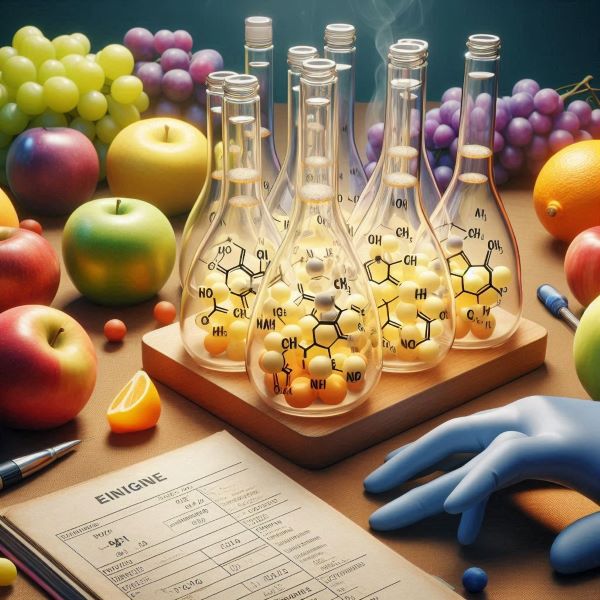Fruit ripening is a natural process that transforms unripe, hard, and often sour fruits into soft, sweet, and flavorful ones. However, to meet the demand for ripe fruits all year round and to extend their market life, artificial ripening methods are often employed. One of the safest and most widely used agents for this purpose is ethylene gas. This article explores everything you need to know about ethylene gas, its usage, benefits, risks, regulations in India, and its status with the Food and Drug Administration (FDA).
Also, read: All You Need to Know About Calcium Carbide, a Chemical Used to Ripen Fruits
What is Ethylene Gas?
Ethylene (C₂H₄) is a natural plant hormone involved in the ripening of fruits. It is a colorless gas with a faint, sweet smell and is produced by many fruits and vegetables. Ethylene plays a critical role in regulating a variety of physiological processes in plants, including the ripening of fruits. (Source)
Description and Usage
It is used extensively in the agricultural and food industries to control and accelerate the ripening process of fruits. This method ensures that fruits ripen uniformly and are market-ready when they reach consumers. (Source)
How Ethylene is Used:
- Ripening Chambers: Fruits are placed in sealed chambers where ethylene gas is introduced at controlled concentrations and temperatures. This method is commonly used for bananas, tomatoes, and avocados. (Source)
- Ethylene Generators: Devices that produce ethylene gas from liquid ethanol are used in warehouses and storage facilities. (Source)
- Spraying Solutions: Ethylene-releasing solutions can be sprayed on fruits to induce ripening.
Benefits of Using Ethylene Gas
- Safety: Ethylene is a natural hormone, making it much safer than other artificial ripening agents.
- Control: It allows for precise control over the ripening process, ensuring fruits are ripe when they reach the market.
- Quality: Fruits ripened with ethylene retain their natural taste, texture, and nutritional value.
Risks and Health Concerns
While it is considered safe for ripening fruits, improper handling or excessive exposure can pose some risks:
- Health Risks: High concentrations of ethylene gas can cause respiratory issues, dizziness, and headaches. However, these levels are far above what is used in fruit ripening.
- Environmental Risks: Uncontrolled release of ethylene into the environment can contribute to pollution and affect air quality.
- Workplace Safety: Workers handling ethylene gas need proper training and protective equipment to prevent exposure. (Source)
Which States and Fruits Use Maximum Ethylene Gas?
In India, states with high fruit production often use it for ripening. Maharashtra, Karnataka, and Tamil Nadu are among the leading states utilizing this method due to their large-scale production of bananas, mangoes, and papayas. (Source)
Fruits Commonly Ripened with Ethylene Gas:
- Bananas: One of the most commonly ripened fruits using ethylene due to their significant export and domestic demand.
- Mangoes: Popular in states like Maharashtra and Andhra Pradesh.
- Tomatoes: Widely ripened using ethylene to ensure they reach the market in perfect condition.
- Avocados: Increasingly ripened with ethylene as their popularity grows in urban markets.
Is Ethylene Gas Banned in India?
No, the use of this gas for ripening fruits is not banned in India. In fact, the Food Safety and Standards Authority of India (FSSAI) has approved the use of ethylene gas as a safe ripening agent, provided it is used in controlled conditions and at specified concentrations. The FSSAI promotes the use of ethylene gas as a safer alternative to harmful chemicals like calcium carbide.
FDA Status
The Food and Drug Administration (FDA) in the United States recognizes ethylene gas as a safe ripening agent. It is categorized as Generally Recognized As Safe (GRAS) for use in fruit ripening. The FDA has established guidelines for its use to ensure consumer safety and maintain the nutritional quality of the ripened fruits.
Also, watch web stories: What Does It Feel Like to Go Through Menopause?
Safer Alternatives and Best Practices
While It is safe and effective, it is essential to follow best practices to ensure its proper use:
- Controlled Environments: Use ripening chambers with proper ventilation and gas concentration controls.
- Training: Ensure workers handling ethylene gas are trained and equipped with safety gear.
- Monitoring: Regularly monitor ethylene levels and environmental conditions to prevent overexposure.
Conclusion
It is a natural and effective agent for ripening fruits, widely used across the globe, including in India. Its safety, controllability, and ability to preserve fruit quality make it the preferred choice over harmful chemicals like calcium carbide. While its use is regulated to ensure safety, understanding the proper handling and application of ethylene gas is crucial for both consumer health and environmental protection.
By opting for fruits ripened with ethylene gas, consumers can enjoy fresh, nutritious, and delicious fruits without the worry of harmful chemicals.





